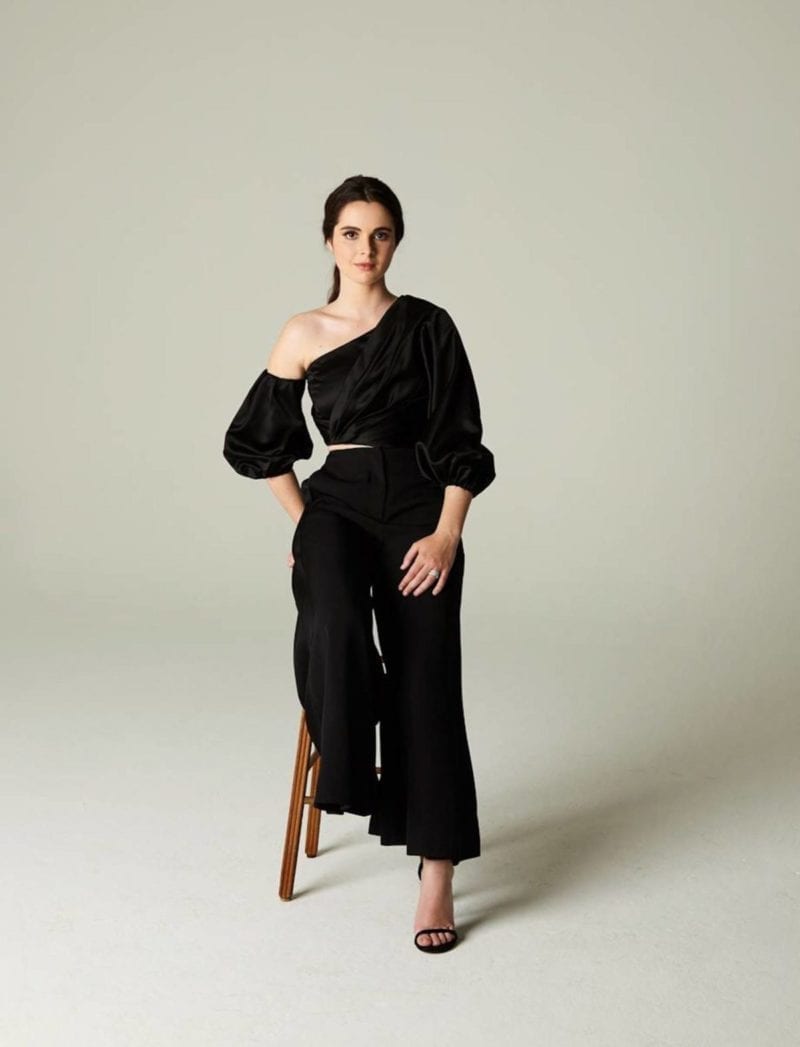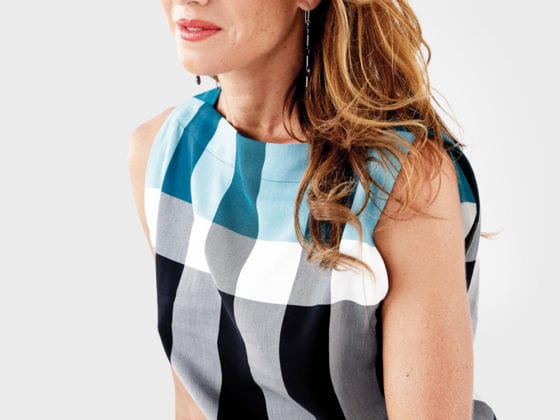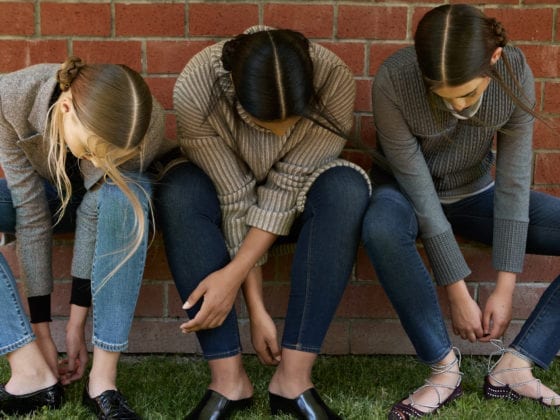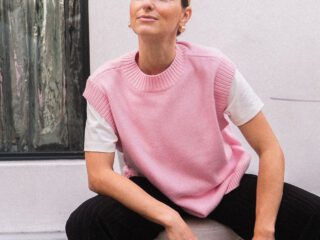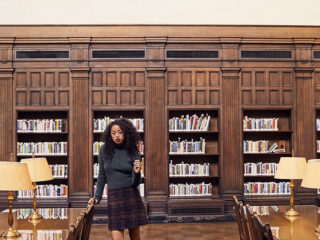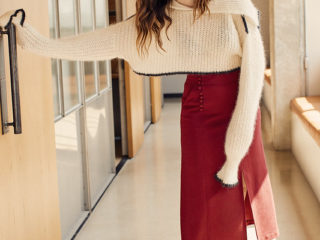“Real Women, Real Work” is a Darling series about everyday women who work in various fields including business, entertainment, science and education. We want to get to know the WHY behind their WHAT and get an inside look into different industries.
Actress Vanessa Marano is big on the facts. Her proclivity for information and education is at the root of her passion for bringing awareness to online sex trafficking. So much so, that she and her sister, actress Laura Marano, co-starred in and produced the film “Saving Zoë” to shine a light on the prevalence of sexual exploitation.
Based on the best-selling novel “Saving Zoë” by Alyson Noël, the film (which was released in 2019) tells the story of two sisters, Zoë (played by Vanessa), a high school senior and aspiring actress who is mysteriously murdered in their small town, and Echo (played by Laura), a high school freshman who attempts to uncover her deceased sister’s secret life and find her killer by reading her diary.
In order to verify the accuracy of the film, Vanessa, Laura and their mom, producer Ellen Marano, partnered up with Equality Now, a nonprofit that focuses on protecting and promoting human rights for women and girls through legal and systematic change. By working with Equality Now, not only were Vanessa and Laura able to learn more about sex trafficking and online sexual exploitation, but they were also able to speak with suvivors and learn from their firsthand stories—a piece of the puzzle that, Vanessa explained, is often missing from the equation for justice.
“Change is rooted in awareness,” Vanessa said. “Truth is a powerful tool, and it starts with listening to the stories of survivors.”
Darling got to chat with Vanessa about bringing “Saving Zoë” to film, her passion for bringing awareness to trafficking by amplifying the voices of survivors and her upcoming online panel to discuss sexual trafficking.
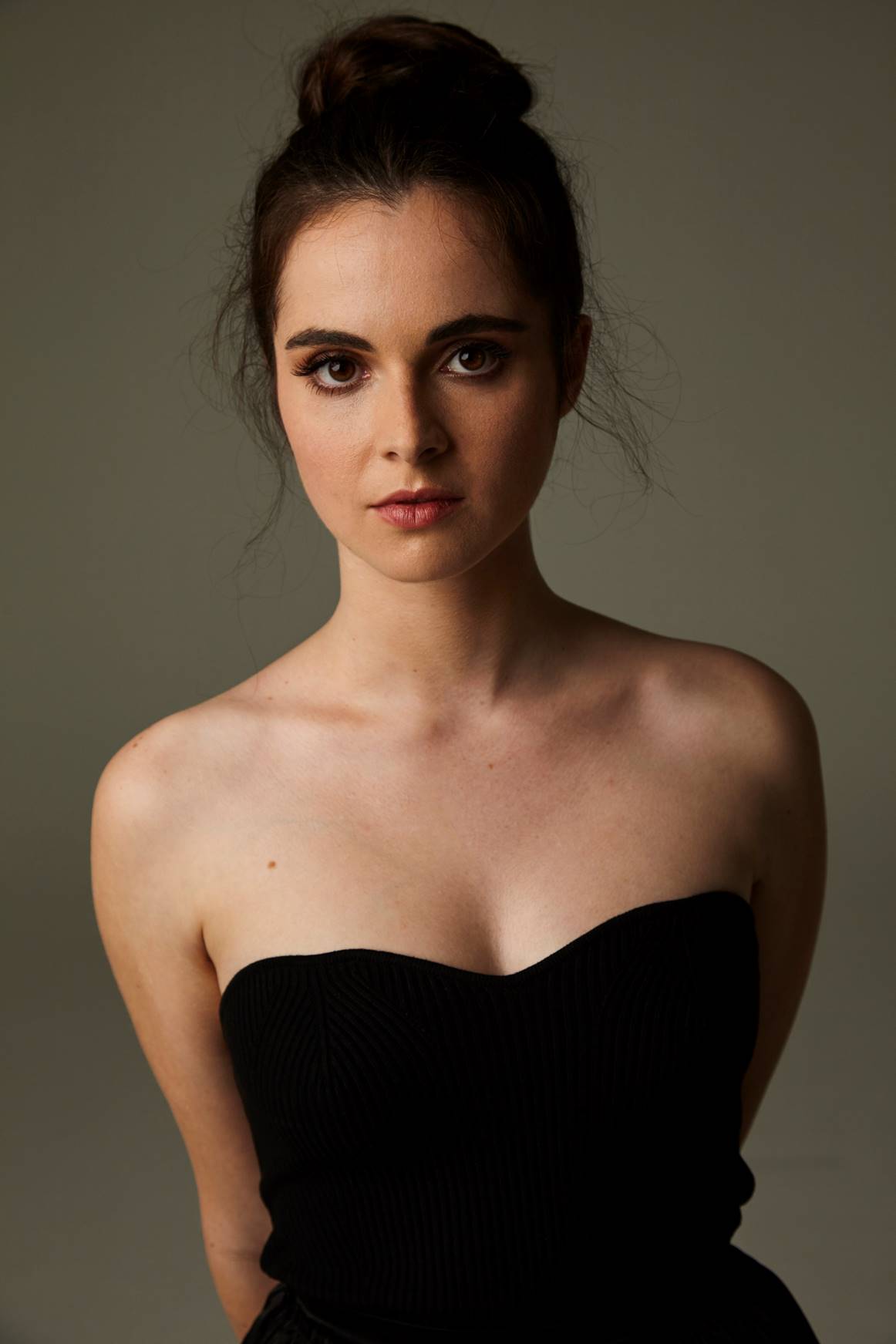
What did you want to be when you were a little girl? When did you know that acting was a career that you wanted to pursue?
I wanted to act, honestly. My mom was a drama teacher. She owned her own drama theater. I started doing plays at 6, and I began acting professionally at 8. You are also a little kid, and you want to be a unicorn. But I am encouraged to say that I never lost passion for acting, even in the times when it was really, really difficult.
I always had a sense that acting was a limited career. I thought I would go to college at 18 and pursue other things. Then, I got older and realized there were so many facets of the entertainment industry, which is how my sister, my mother and I made the decision to get into production.
We decided to make “Saving Zoë” 10 years before it became a reality. It involved a lot of doors getting slammed in our face. After we read the book, we were so moved by this powerful story of grief and love and how it tackles an issue that many YA films don’t typically address. We knew that this was the story we wanted to tell as first-time producers, and we wanted this project to really resonate with the audience and be informative.
I always come from the place that information is powerful. Accurate information is paramount. We wanted everything to come from that place, which is why we teamed up with Equality Now on the film. It allowed us to come from a place that was knowledgeable. People were so supportive. We are grateful for the careers we have and the loyal following we have. We have been in the industry for 20 years now.
I always come from the place that information is powerful. Accurate information is paramount.
What are some of your most fond memories from early on in your acting career?
One of my first leading roles was “The Brooke Ellison Story” directed by Christpher Reeves. It was the last project he did. I played a quadriplegic, the same injuries that Chris had. The role took me to rehab centers and on a mock ambulance run. I got a firsthand perspective from a talented actor and from someone who has a force of nature spreading awareness about paralysis. He was so kind and so generous, both as a director and as a human being. His passion and care for the paralysis community was contagious.
Getting “Gilmore Girls” was a highlight of my life as well. I had always been a big fan. I remember my first day on set and walking around taking pictures of Stars Hollow with a disposable camera. I didn’t even care about taking pictures of the actors. I’d be working with them every day. I just wanted pictures of Stars Hollow.
“Switched at Birth” was the first thing I was leading in that was really successful. I have so many fond memories of that show, of working with the cast and the crew. I got to learn sign language. I am still close with the cast and crew. I have so many memories of hanging out behind the scenes and the inside jokes we’d tell.
What is one question you get most often from fans related to “Gilmore Girls”?
It used to be, ”Is it going to come back?”
I was the one saying it’ll never come back, and, boy, was I ever wrong!
Other than “Gilmore Girls,” a question that you get about a lot of projects is, “Do you still stay in touch with everybody?”
“Switched at Birth” is a good example because we still are in contact. When you are passionate about a project and enjoy the people you work with, it resonates with people. It really shows on camera.
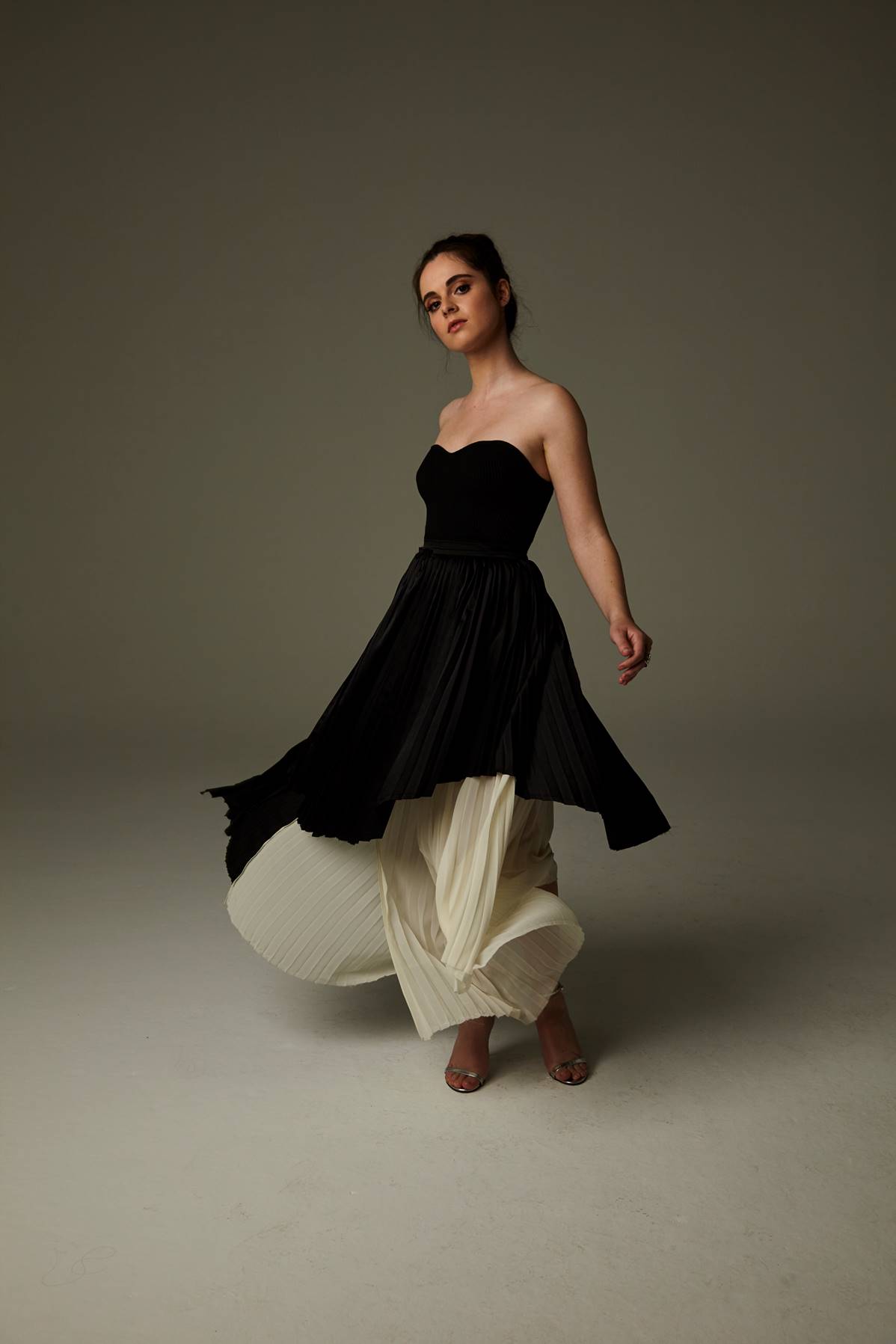
What has it been like working with your sister, Laura Marano, and producing and starring in “Saving Zoë”?
Our first job together was in the 2000s on “Without a Trace,” and we were also background voices in “Finding Nemo” together. When we finally got to do “Saving Zoë,” since our mother owned a studio, we were very used to acting together. Getting to produce together (which we had never done individually or together) was the new part.
It was hard to produce and act at the same time. We shot the film in 15 days. As producers, we were responsible for making every part of the movie happen. Everything that could go wrong did go wrong. We weren’t sleeping. We were working all hours of the night and working as hard as we could. I was just really happy to have my sister there because it’s great to know someone has your back. We had our mom there, too, so it definitely was a family affair.
Don’t get me wrong, we also wanted to kill each other at points. We were at each other’s throats sometimes, but that is the beauty of working with family. At the end of the day, even when you disagree, you still have each other’s backs.
That is the beauty of working with family. At the end of the day, even when you disagree, you still have each other’s backs.
We came up with a final product that accurately portrayed the story we wanted to tell, which was greatly influenced by us working with Equality Now. We got to talk to survivors and meet them. We got to show the first cut of the film to survivors and get their opinions and feedback. We, then, used that feedback in making the final cut.
You mentioned in your article for The Hill, that getting “Saving Zoë” from page to screen was difficult. How did you feel when film companies were initially reluctant to pick up the project?
“Saving Zoë” is based on the 2007 novel from Alyson Noël. When Laura and I read it, we really resonated with it because it’s the story of two sisters. We decided to take the book from novel to film and purchase the film rights. We were lucky that Alyson took a risk on a mother and two sisters. She believed in us.
It took 10 years of rejections and doors slamming in our faces because, at the time, we didn’t necessarily have the clout to get it over the edge. When we finally did have the clout, the issue we came up against was that people were afraid of the topic. They’d say it was too dark for a female audience, but the reality is that 78% of victims of online child sexual exploitation are girls. We kept being told that it was too dark. We heard “too dark” so many times.
We pushed back. We said, “No, women and girls are fully formed individuals who can handle a lot more than people think we can handle.” I truly believe that women and girls are so powerful. So we kept trying and knocking on doors.
Alyson wrote the book in the time of MySpace. Who knew how common sexual exploitation would be 10 years later? When “13 Reasons Why” came out in 2017, there became a demand for darker YA content. The timing of “13 Reasons Why” paved a way for people to take a chance on this film.
We knew how we wanted to tell the story of “Saving Zoë.” We didn’t want to tell a watered-down version of it. We wanted it to be real. The only way to truly tell a story the way you want to tell is to film it independently. Luckily, Studio71 and director Jeffrey Hunt made it possible for this to happen.
We knew how we wanted to tell the story of “Saving Zoë.” We didn’t want to tell a watered-down version of it. We wanted it to be real.
After the production delays and pushing filming back a couple of years, the next step is you have to get it to distributors. We had to figure out how to get it over the finish line. We were determined to get this film out there and tell this story. It took another two years to get it to distribution.
After all the hard work and persisting, finally, the story was being told our way. We were even able to take it to a political forum at the United Nations because we worked with Equality Now. After all those moments of struggle and being told no, getting to go to the U.N. and showing the film to policymakers and survivors who felt a sense of appreciation that we took their opinions into account and told a story accurately, those things made it worth it.
There are so many important social justice and human rights issues being brought to the light, even more so in 2020 than ever, it seems. How do you decide what to use your platform to spotlight?
The issues I speak about are the issues I feel most educated about and the issues that I can shine a light on someone else who is even more knowledgeable than me. I always like things to be rooted in information. It’s easy to share a story, but to do the research and follow up is so important. Even when you do the research, it is possible for there to still be something you missed.
Sharing accurate information is really important to me. I don’t want to be a part of spreading anything that I don’t fully believe in and that is not rooted in information. I want to make sure that I have the voice of someone who has been directly affected by the issue approve and also allow their voice to be heard.
Sharing accurate information is really important to me. I don’t want to be a part of spreading anything that I don’t fully believe in and that is not rooted in information.
This is why Laura and I were so passionate about having survivors speak on our Instagram. We wanted people who had been directly impacted and who were comfortable to share their experiences to use their voice for advocacy. This is something that is super valuable. This is something that I am adding to the national conversation and give a platform to speak about their experience firsthand.
Why are you passionate about raising awareness about human trafficking?
I believe everything happens for a reason. Through my time on “Switched at Birth,” I got introduced to the Deaf community. Now, I have so many friends who are deaf, hard of hearing and interpreters. I was introduced to this whole world. I feel incredibly passionate about continuing my education, bringing awareness to the Deaf community and sharing anything my Deaf colleagues want me to share.
With “Saving Zoë,” as readers of the novel, this story resonated with me and my sister. We actually had a bunch of projects in development, but this was the first one we got over the finish line. Again, everything happens for a reason. I believe we should use the success we have for the greater good. Because Laura and I have the knowledge about this issue, we feel that we should be sharing it.
I believe we should use the success we have for the greater good.
Alyson didn’t even realize when writing the book the impact it would have to bring awareness to human trafficking. She was writing about grief and mourning. Human trafficking is a $99 billion industry. There has not been a lot of light that has been shined on sexual exploitation and sex trafficking, but there is way more happening now, which is great.
Why did you decide to specifically partner with Equality Now to host a panel to discuss online trafficking?
Laura had worked with them previously. So when you have worked with someone, they become the people you love and trust. She was a part of one of their galas when she was 15 or so. It was a bunch of young actresses who were reading monologues of true stories of girls who had been trafficked, mutilated and forced into childhood marriage.
When we were in the editing process of the film, we knew that in order to tell the story accurately that we’d need a partner. We wanted to add on a humanitarian component. My mom remembered the gala while we were editing the film. So we asked Equality Now to watch the film and whether or they’d be interested in partnering with us. They said, let’s do this!
Equality Now’s goal, first and foremost, is gender equality for young women and girls. They work to change laws to make sure that we are all equal. That is what makes them amazing is that they are changing laws. There are certain loopholes in the law that need to be closed. For example, there is no legal definition of online sexual exploitation. It is so important that the laws accurately reflect equality because that is how we hold people accountable. When the letter of the law is precise and reflects the meaning of equality, that is when justice happens.
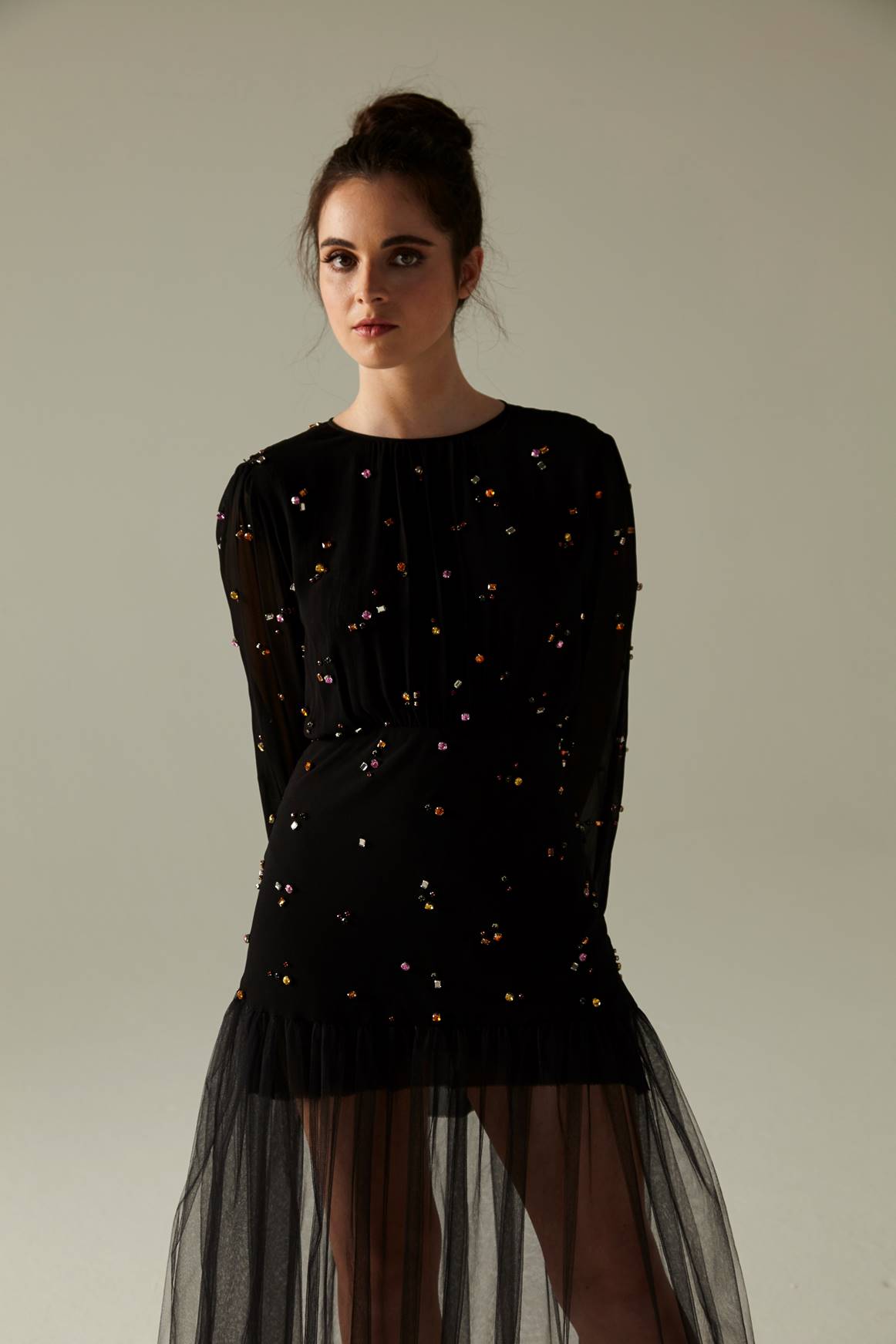
You petitioned in support of the Put Trafficking Victims First Act, which was passed by the House and later stalled in the Senate. Why is it important to amplify the voices of victims and to put their stories, opinions and needs first?
I truly believe that in order to enact change, it has to come from a reliable place. Survivors have firsthand experience that lawmakers and policymakers may not necessarily have. One of the things we were told when we showed the film to survivors was that it was accurate across the board.
One thing they also said, every single survivor said, is something along the lines of, “Law enforcement never shows up that fast,” or “They didn’t believe me as a kid,” or “Law enforcement was sometimes customers of my pimp.” Every survivor didn’t feel protected.
I do not think there is malice from law enforcement, but in order to actually change policy, survivors need to be heard, believed and listened to about what needs to be changed in regards to the law. That is why it is so important to share their stories. We need to listen to them and advocate for change.
If we can combine the law, organizations and survivors, we can make true change. When we don’t give a face to exploitation, it’s easy to ignore and act like it’s not happening. It’s easy to blame them. This can happen to anybody. It is never the victim’s fault. Survivors have to have feet at the table when policy is being made. They have to be believed and have a safe place to tell their stories.
Survivors have to have feet at the table when policy is being made. They have to be believed and have a safe place to tell their stories.
You recently starred in the new film “This is the Year.” What are some upcoming projects that you are excited about?
“Saving Zoë” is still available on Netflix. I highly recommend everyone to watch it. It’s available on Netflix South America, Canada, New Zealand and America. It’s also on Amazon Prime in Europe.
We are also doing another panel with Equality Now to speak on the tech side of things and to dive into what’s going on legally and on the technology side of sexual exploitation. We are going to discuss how the internet has increased the market for sex trafficking and how this largely goes unregulated. It’s a followup from our last panel, which was in celebration of the anniversary of “Saving Zoë.”
What advice do you have for young girls trying to figure what their passion or purpose is? How can girls learn to speak up for what they believe in?
Make sure everything you speak up about is rooted in knowledge. Continue to educate yourself. But most of all, just do it! Speak up for the things you are passionate about.
The world often makes us feel like we’re so small and that if you are one person, you can’t make change. That’s not true. You can make a difference. Speak up about the things you care about. Change comes from awareness.
Speak up about the things you care about. Change comes from awareness.
Knowing what you know now (about life and career), what advice would you give your younger self?
I’d tell myself: Never be afraid to ask in regards to information you want to know. Never be afraid to ask when you need help. Asking for help is not a sign of weakness. Never be afraid to ask for a favor. I used to try to handle everything by myself. Now, I know the power in asking for help when I need it.
To keep up to date with Vanessa’s latest projects, follow her on Instagram. To learn more about the fight against human trafficking, follow Equality Now. Also, click here for tips on how to stay safe online.
Images via Brooklin Rosenstock

